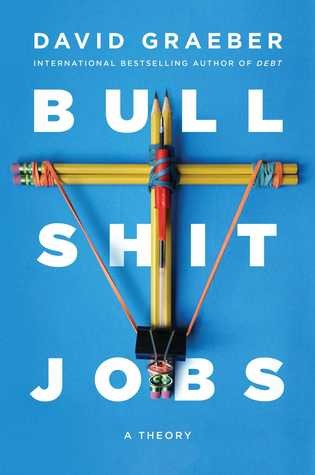fountainhead quoted Bullshit Jobs by David Graeber
Shullenberger speaks of an emerging "voluntariat," with capitalist firms increasingly harvesting the results not of paid labor but of unpaid interns, internet enthusiasts, activists, volunteers, and hobbyists, and "digitally sharecropping" the results of popular enthusiasm and creativity to privatize and market the results. The free software industry, perversely enough, has become a paradigm in this respect. The reader may recall Pablo, who introduced the notion of duct taping in chapter 2: software engineering work was divided between the interesting and challenging work of developing core technologies, and the tedious labor of "applying duct tape" to allow different core technologies to work together, because the designers had never bothered to think about their compatibility. His main point, though, was that, increasingly, open source means that all the really engaging tasks are done for free: Pablo: Where two decades ago, companies dismissed open source software and developed core technologies in-house, nowadays companies rely heavily on open source and employ software developers almost entirely to apply duct tape on core technologies they get for free. In the end, you can see people doing the nongratifying duct-taping work during office hours and then doing gratifying work on core technologies during the night. This leads to an interesting vicious circle: given that people choose to work on core technologies for free, no company is investing in those technologies. The underinvestment means that the core technologies are often unfinished, lacking quality, have a lot of rough edges, bugs, etc. That, in turn, creates need for duct tape and thus proliferation of duct-taping jobs. Paradoxically, the more that software engineers collaborate online to do free creative labor simply for the love of doing it, as a gift to humanity, the less incentive they have to make them compatible with other such software, and the more those same engineers will have to be employed in their day jobs fixing the damage-doing the sort of maintenance work that no one would be willing to do for free. He concludes: Pablo: My guess is that we are going to see the same dynamics in other industries as well. E.g ., if people are willing to write news articles for free, nobody would pay professional journalists. Instead, the money will be redirected to the PR and advertisement industries. Eventually the quality of news will decrease because of lack of funding. One could argue that this has already begun to happen, as fewer and fewer newspapers and news services employ actual reporters. My purpose here, though, is not to unravel the complex and often arcane labor arrangements that grow out of this ethos, but simply to document the existence of the ethos itself. Attitudes toward labor have changed. Why? How have so many humans reached the point where they accept that even miserable, unnecessary work is actually morally superior to no work at all?
— Bullshit Jobs by David Graeber (64%)
Darn it. I assumed open source was universally “good”. Not so it seems.

